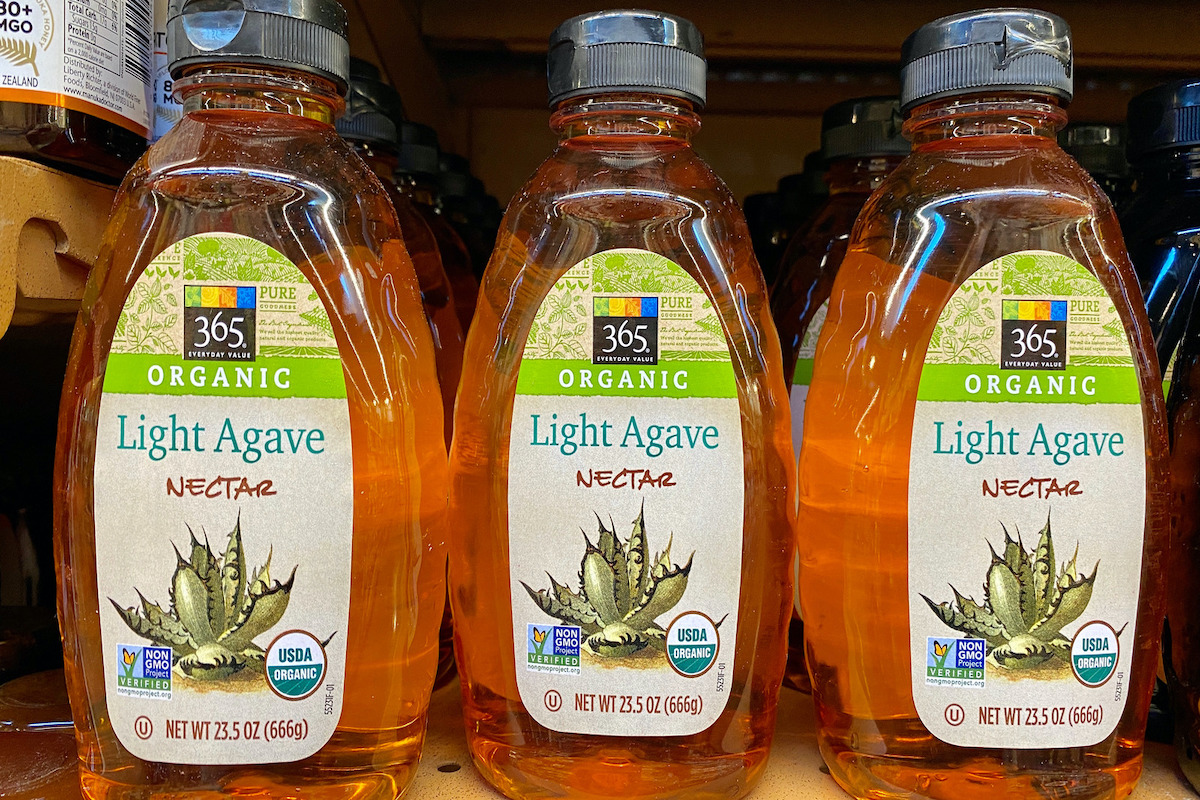#35 Agave Nectar
Agave nectar has gained popularity as a natural sweetener and an alternative to refined sugar. It is derived from the sap of the agave plant, primarily grown in Mexico, and is known for its syrup-like consistency and distinctively sweet taste. While agave nectar is often marketed as a healthier option, it’s important to delve deeper into its composition and potential impact on health.

One aspect to consider is the high fructose content of agave nectar. Fructose is a type of sugar that is metabolized differently in the body compared to glucose. While small amounts of fructose from natural sources, like fruits, can be part of a balanced diet, excessive consumption of fructose, particularly from added sugars, has been linked to various health concerns. These include weight gain, increased risk of type 2 diabetes, and negative effects on liver health. Agave nectar, despite its lower glycemic index compared to refined sugar, is still concentrated in fructose and should be consumed in moderation.
Furthermore, it’s important to note that agave nectar undergoes a refining process before it reaches store shelves. The process involves heating, filtration, and enzymatic treatment to convert the sap into a sweet syrup. As a result, some of the natural compounds and potential health benefits present in the agave plant may be lost during processing. It’s essential to be aware that while agave nectar is derived from a plant source, it is still a concentrated sweetener that should be used mindfully to maintain a balanced diet and avoid excessive sugar consumption.

